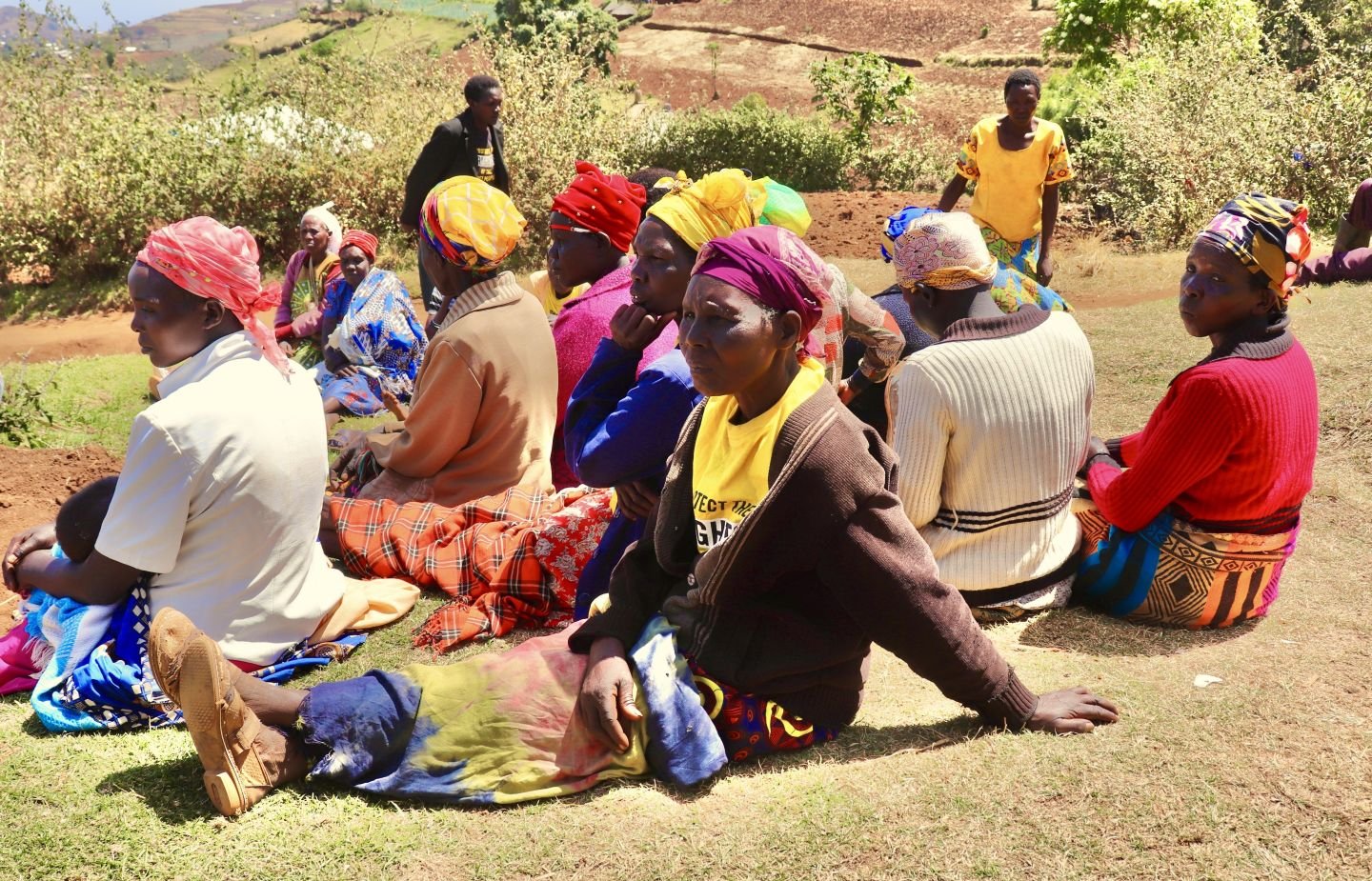
Realizing Rights for All: tackling the structural drivers of economic, social and cultural rights deprivations facing marginalized groups
Duration: 1 April 2022 – 31 December 2024
Country: Latin America (Chile, Colombia, Ecuador, Mexico, Guatemala, Peru), North Africa (Morocco, Tunisia), Sub-Saharan Africa (Ethiopia, Ghana, Kenya, Nigeria, Rwanda, South Africa, Uganda), Central Asia, Eastern Europe (Ukraine), South Asia (India, Nepal), Southeast Asia (Cambodia, Thailand)
Communities: Various
What is this programme about?
This programme aims to strengthen the voices of marginalized communities, including minorities and indigenous peoples, in the design and implementation of economic and environmental policies affecting their economic, social and cultural (ESC) rights, including by supporting them to demand accountability when such policies do not comply with human rights standards and principles. It has been developed through consultation with activists, paralegals, civil society organizations and community representatives active in the targeted countries.
It builds on From Disparity to Dignity, a programme delivered by Minority Rights Group (MRG) and the Center for Economic and Social Rights (CESR) between 2019 and 2021. It assimilates the lessons learnt from the previous programme to tackle the root causes of exclusion of marginalized communities worldwide in a new collaboration between MRG, CESR and The Global Initiative for Economic, Social and Cultural Rights (GI-ESCR).
Why are we delivering this programme?
The Covid-19 pandemic and its ensuing economic crisis have had a disproportionate impact on already disadvantaged populations. Structural factors that perpetuate ESC rights disparities have been laid bare, showing that, to date, they have not been adequately tackled. This is due to a persistent lack of policy coherence at national, regional and international levels.
The exclusion of marginalized groups in decision-making processes on economic and environmental policies leads to the reinforcement of ESC rights disparities. This includes unfair tax policies and development financing arrangements; the underfunding and commodification of public services; the exclusionary and unsustainable management of land and natural resources; a lack of climate ambition; and gender-blind efforts to transition to renewable energy.
Indigenous movements in Ecuador, for example, decry the discriminatory impact of decades-long austerity measures that have weakened the health system’s response to the pandemic. Indigenous peoples’ rights groups in Kenya, the Democratic Republic of Congo, Brazil and India highlight how natural resource extraction intensified during the pandemic; as loggers and miners encroached on their lands, they brought the coronavirus along with them to populations with little or no access to emergency healthcare services.
Women’s rights groups emphasize the unequal burden of care responsibilities that fell even more disproportionately on women during the crisis. Disability rights groups point to exclusionary health and social protection systems that heighten the pandemic’s risks to persons with disability. Meanwhile, especially in post-colonial states like India, the vehement re-emergence of identity politics is creating majorities that reinforce rather than combat ossified structural discrimination against indigenous and minority populations. All these disparities risk being exacerbated in coming years as intersecting inequality and climate crises intensify.
What are we doing?
- Designing and carrying out cutting-edge research with active community participation to analyse the economic drivers of intersecting social and environmental inequalities faced by marginalized groups.
- Supporting partners with targeted advice, movement building, research and advocacy project design and implementation, and research publication.
- Conducting a global survey on the perception of public services, publishing analytical and thematic country briefings and undertaking scoping missions in the target countries.
- Supporting evidence-based advocacy by marginalized groups and those representing and supporting them at national, regional and international levels, including submissions to regional human rights bodies and United Nations human rights mechanisms.
- Participating in global financing and sustainable development, sensitization and awareness-raising of inter-governmental agencies operating at national levels, and building relationships with select policy-makers and influencers at international organizations.
- Supporting communities, their representatives, and supporters to establish or strengthen common advocacy approaches, collective campaigns, and other actions through formal and informal coalitions.
- Such coalitions will work to build movements aimed at disrupting public perceptions of, and dominant narratives about, the economic and environmental policies affecting the ESC rights of marginalized groups.
- Building capacity to broaden the community of allies working with marginalized groups that share knowledge, skills and tactical approaches through learning labs; a series of virtual workshops engaging in collective inquiry, action, and reflection; an online course on research for activism; and publishing research on critical concepts.
Who are our partners?
The Global Initiative for Economic, Social & Cultural Rights (GI-ESCR) is a non-governmental organisation that promotes transformative change to end endemic problems of social and economic injustice through a human rights lens. They will partner with national in-country organizations representing indigenous peoples as well as feminists and environmental organizations.
Center for Economic and Social Rights (CESR) is an international non-governmental organization that aims to transform the dominant economic system. They will work with a range of national in-country partner organizations across the globe working on the rights of women, people with disability, LGBTQI people as well as the rights of indigenous and Afro-descendant peoples.
Who is funding this programme?
This programme is supported by the Ministry for Foreign Affairs of Finland.
 Indigenous Benet women attending a meeting with journalists and MRG Africa staff recently at Kwosir sub-county, Kween district in eastern Uganda. Credit: Billy Rwothungeyo/MRG.
Indigenous Benet women attending a meeting with journalists and MRG Africa staff recently at Kwosir sub-county, Kween district in eastern Uganda. Credit: Billy Rwothungeyo/MRG.